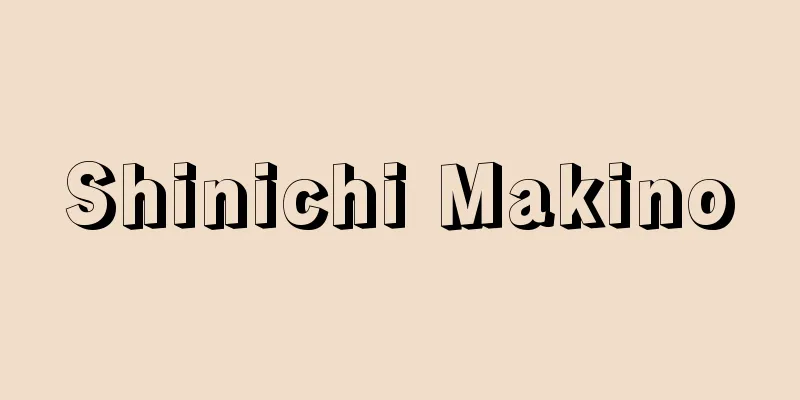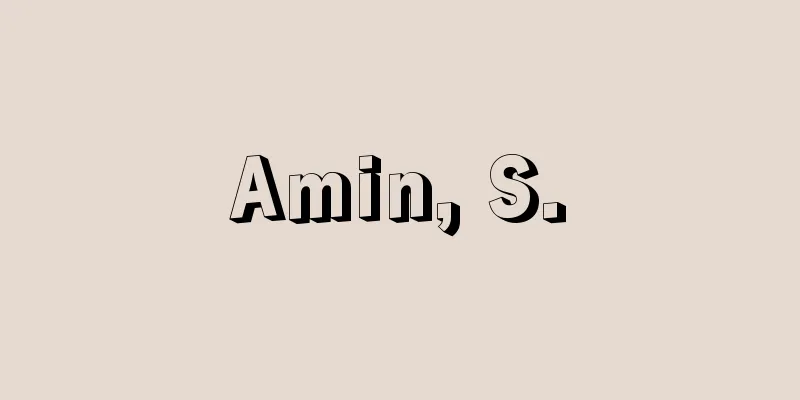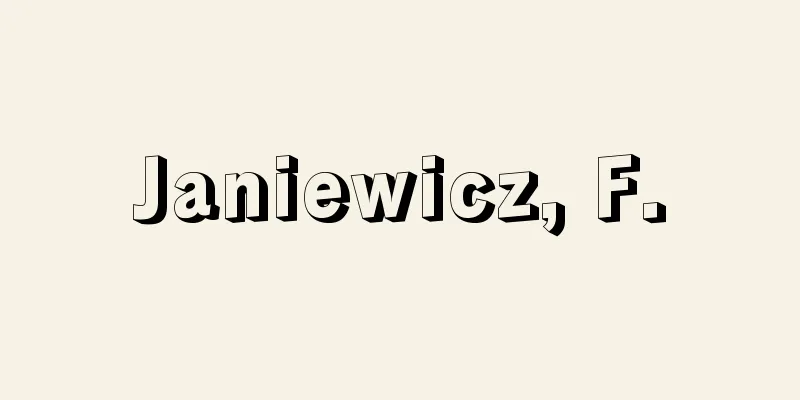Shinichi Makino

|
Novelist. Born November 12, 1896 in Odawara, Kanagawa Prefecture. When Makino was six months old, his father left for the United States alone. From an early age, he learned the organ and spoke English, and it is thought that his admiration for his father, who lived in a foreign country, was the basis of his fantastical style. After graduating from the Department of English at Waseda University, he founded the literary coterie magazine Jusannin with fellow classmate Shimomura Chiaki and others. His debut work Tsume (1919), published in the magazine, was recognized by Shimazaki Toson. In 1921 (Taisho 10), he married Suzuki Setsu and returned to Odawara, but moved to Tokyo when Nakatogawa Kichiji asked him for help in founding the magazine Zuihitsu. Through editing Essays, he came to know Zenzo Kasai and Koji Uno, and published his first collection of creative works, The Child Who Sells His Father (1924). The works of this period are based on his parents and have a style of exhibitionistic and self-deprecating autobiographical novels, but also have strong caricature overtones. In the Showa period, he turned to a bright and fantastical style that introduced Greek and medieval imagery to his personal descriptions set in the Odawara area, and wrote Shinzo Fukei (1931-32), Zelon (1931), and Sake Doto (1932), while also publishing the magazine Bunkaku. After that, after such fine works as "Yomi no Maki" and "Tengu Cave Shokukyakuki" (both 1933), his works gradually became more dark and autobiographical, and he committed suicide by hanging on March 24, 1936, leaving behind works such as "Kinada Mura" (1934) and "Awayuki" (1935), which deepen his self-loathing and hatred for his mother. His other works include "Seibu Geki Tsuushin" (Western Theater Correspondence) (1930), "Kinada Mura" and "Sake Doto" (Both 1936). [Takako Yanagisawa] "The Complete Works of Shinichi Makino, 3 volumes (1962/Republished with an enlarged edition in 1975, Jinbun Shoin)" ▽ "Criticism of Shinichi Makino, by Akiaki Yakushiji (1966, Meiji Shoin)" [Reference] |Source: Shogakukan Encyclopedia Nipponica About Encyclopedia Nipponica Information | Legend |
|
小説家。明治29年11月12日、神奈川県小田原に生まれる。生後半年で、父が単身渡米。幼時からオルガンや英会話を習い、他国の父への憧憬(しょうけい)を募らせた体験が、牧野の幻想的作風の母体となったとも考えられる。早稲田(わせだ)大学英文科卒業後、同窓の下村千秋(しもむらちあき)らと同人誌『十三人』を創刊。ここに載せた処女作『爪(つめ)』(1919)が島崎藤村(とうそん)に認められた。1921年(大正10)鈴木せつと結婚して小田原へ帰るが、中戸川吉二(きちじ)より雑誌『随筆』創刊のための助力を求められ、上京。『随筆』編集を通じて葛西善蔵(かさいぜんぞう)、宇野浩二(うのこうじ)らを知り、第一創作集『父を売る子』(1924)を刊行する。この時期の作品は、父母を題材にした露悪的かつ自虐的な私小説的作風をもつが、戯画的色合いも強い。昭和期に入ると、小田原近辺を舞台とする身辺描写にギリシアや中世のイメージを導入した明るい幻想的作風に転じ、『心象風景』(1931~32)、『ゼーロン』(1931)、『酒盗人』(1932)などを書くとともに、雑誌『文科』を主宰。その後『夜見(よみ)の巻』『天狗(てんぐ)洞食客記』(ともに1933)などの佳作を経て、しだいに暗い私小説的作品が増し、自己嫌悪や母親憎悪の度を深めた『鬼涙(きなだ)村』(1934)、『淡雪』(1935)などを残して、昭和11年3月24日縊死(いし)自殺を遂げた。ほかに作品集『西部劇通信』(1930)、『鬼涙村』『酒盗人』(ともに1936)がある。 [柳沢孝子] 『『牧野信一全集』全三巻(1962/増補再刊・1975・人文書院)』▽『薬師寺章明著『評説牧野信一』(1966・明治書院)』 [参照項目] |出典 小学館 日本大百科全書(ニッポニカ)日本大百科全書(ニッポニカ)について 情報 | 凡例 |
Recommend
Kazanlâk (English spelling)
… [Matsunaga Midori] 【art】 In 1972, relics from t...
Wessex
The ancient name of the southern part of England. ...
Styra tonkinensis (English spelling) Styratonkinensis
…[Nitta Aya]. . . *Some of the terminology that m...
Galbula ruficauda (English spelling) Galbula ruficauda
… There are about 15 species distributed from sou...
pyroclastic rocks
…All of these are coarse-grained rocks. Other ign...
Isawa Castle
A base for the management of the Ezo in the early...
DSM screen
...The arc-shaped screen (Figure 2), which uses a...
Tonaki Island
One of the Okinawa Islands, this island is locate...
pimpernel
...A few species of this genus, including this on...
Apex beat - apex beat
A protuberance on the chest wall that occurs when ...
Antistius - Antistius
…In the Greek era, Hippocrates had already writte...
Stijn Streuvels
1871‐1969 Belgian (Flemish) novelist. His real nam...
Sobu Main Line
The name of the East Japan Railway Company's ...
Flock - herd
Generally, a group of individual animals is calle...
Casemosa (Casemeria verrucosa) - Casemosa (English spelling)
A worm-shaped mollusc of the family Corallidae in ...


![Yamamatsuri [town] - Yamamatsuri](/upload/images/67cd0e7fa4ced.webp)






